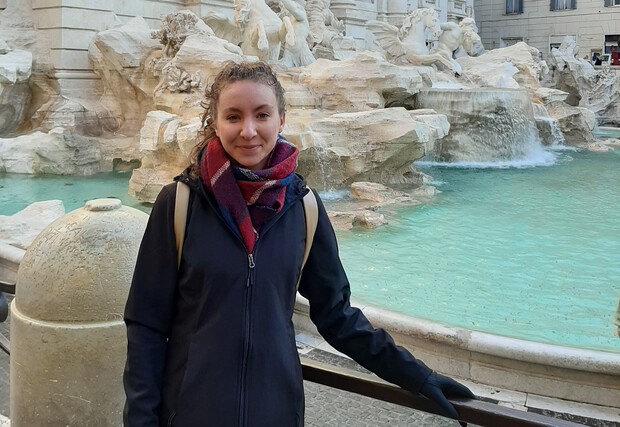
By Lindsey Amen, University Communications
On May 9, thousands of graduating Huskers turned their tassels together as a class and officially became University of Nebraska–Lincoln alumni. The moment symbolized a successful end to spring semester, and was a testament to the hard work of countless faculty and staff over the past several months.
Nebraska’s Global Strategies and Education Abroad offices were a key part of that campus wide effort. From late January through March, the teams worked round-the-clock to facilitate the safe return of 95 students and 22 faculty and staff traveling abroad during the spread of COVID-19.
“It was a hectic two or three months. It seemed like curveball after curveball. It was just difficult to anticipate how things were going to unfold,” said Dave Long, Nebraska’s global safety and security director. “I think everyone has put in 14-, 16- and 18-hour days as this has progressed through the different levels of the university.”
Long, along with education abroad director Rebecca Baskerville, began leading the university’s international response to COVID-19 in late January with the recall of one student studying in China and several others planning to go there later in the month.
“It was a bit of a ‘canary in the coal mine’ kind of dynamic,” Long said. “At the time, we didn't quite feel like canaries in the coal mine, because we didn't know that the virus was going to impact the U.S. as significantly as it has.”
As the situation snowballed into a global pandemic, Long and Baskerville kept most of their attention on Europe, where the majority of faculty and staff were located. The two spent their days in COVID-19 taskforce meetings, monitoring the CDC website for updates, checking in with Big 10 colleagues for advice and best practices, and answering a flood of student and parent questions with the help of the education abroad team.
With some students on faculty-led or provider programs and others studying at foreign universities, Baskerville’s team had to navigate each situation on a case-by-case basis. They also had to act far in advance to avoid border closures and ensure students and faculty weren’t stuck overseas.
“It was an interesting spot to be in, because we felt like we were on the frontlines of this situation," Baskerville said. "Our field was one of the first, along with fields like tourism and hospitality, to have to deal with this head on.”
Now-graduated senior architecture major Lindsay Meyer was on a faculty-led program in Rome, Italy, when the virus began to spread within the country. Meyer and her group were moved to London, England, temporarily to continue their studies before ultimately returning to the United States.
While she wishes she’d had a full study abroad experience to round out her time at the university, Meyer said the decisive leadership from the university made the situation easier to handle.
“When it became obvious to us that it could affect our travel plans while we were in Rome, obviously, I was a little bit disappointed, but I also knew that we would make the decisions that were safest for everyone — and ultimately, that's the most important thing,” Meyer said. “Our faculty member who was with us (Peter Olshavsky) did an excellent job of handling the unknowns and all of the chaos that comes when plans are upended and you're not in a country you’re used to.”
For Long, who has worked in global safety and security for most of his career, the spread of COVID-19 has been unlike anything he's experienced before.
“Prior to this happening, it was easier to anticipate localized epidemics that would impact specific programs — but not something that would require a complete recall of not only our students, but our faculty and staff as well,” Long said. “I’m just very proud of how the university has responded, as well as the teamwork and the creativity that was deployed by the education abroad team. It’s good to be a part of a good team, and that makes all the difference in times like this.”
Since March, the team has stayed busy helping students navigate the academic and financial challenges related to program interruptions, cancellations and deferrals. As summer begins, both offices are adjusting their focus by facilitating virtual learning opportunities, advising students on upcoming plans, developing programs and resources, and connecting with international students on campus and overseas.
“I'm extremely proud of the work of our team this semester," said Josh Davis, associate vice chancellor for global affairs. “We’ve had to deal with unprecedented disruption to global engagement and international travel, and yet we’ve found ways to keep our people safe and our international partnerships intact. Going forward, our team is ready to find innovative ways to continue to grow UNL’s global reach and impact and to create new opportunities for our students, faculty and staff to engage."
This article was originally published in Nebraska Today.